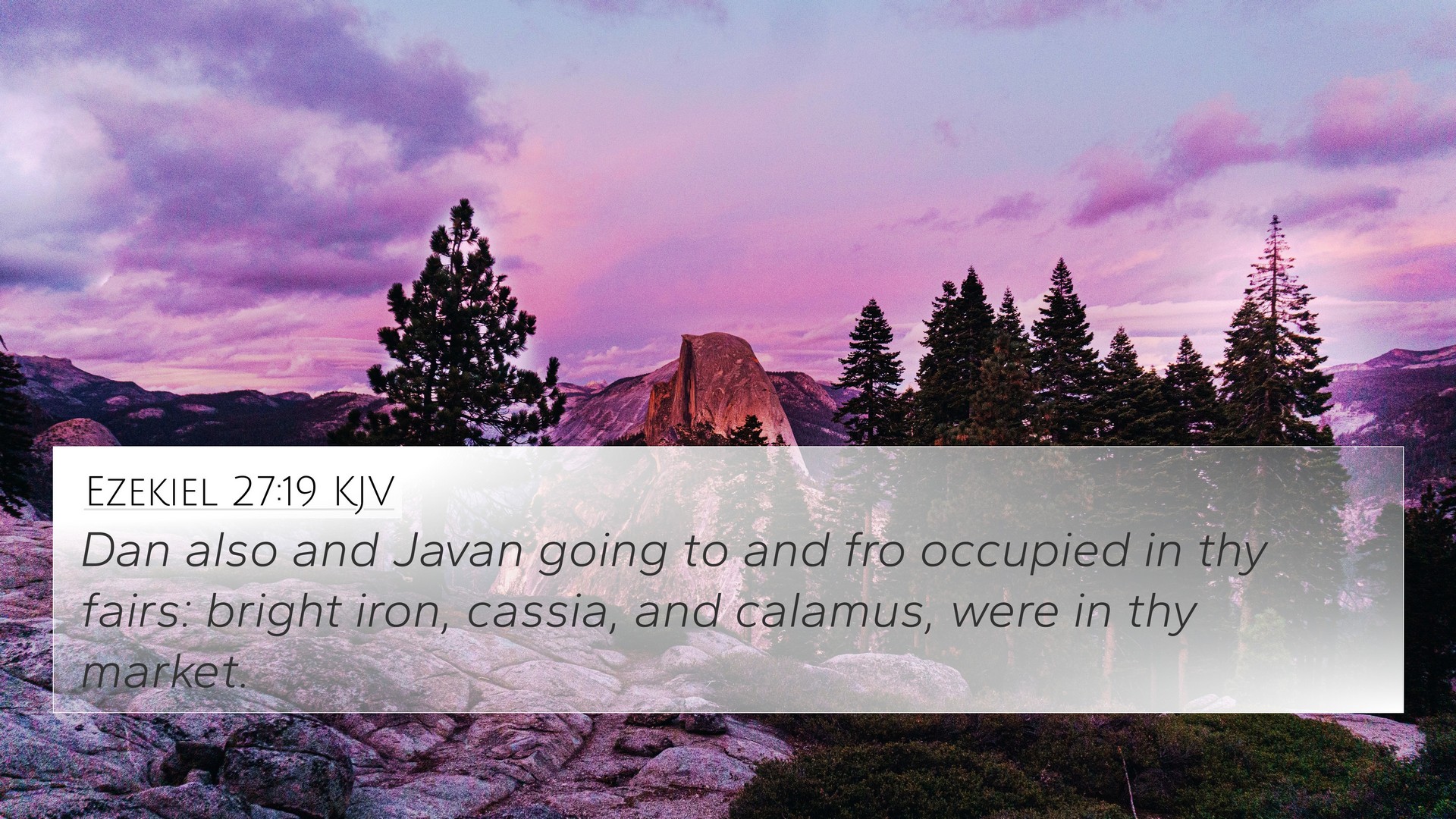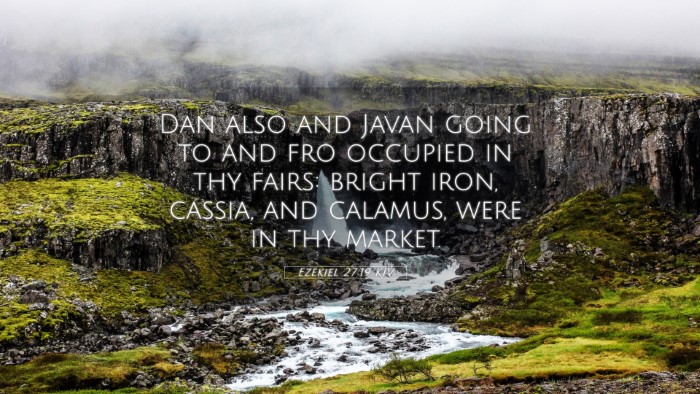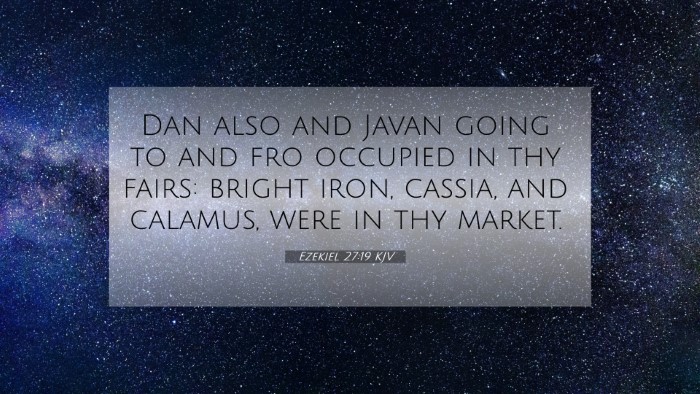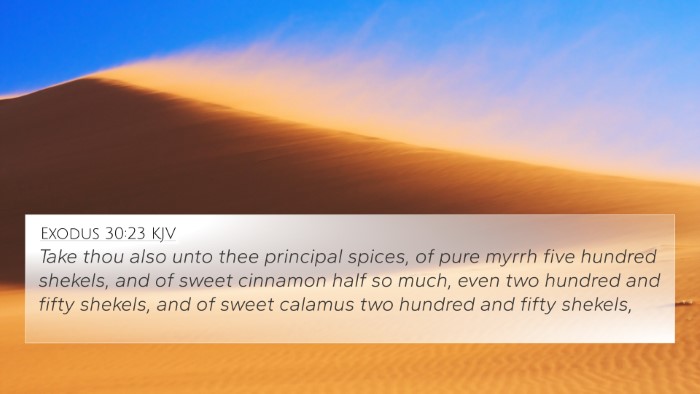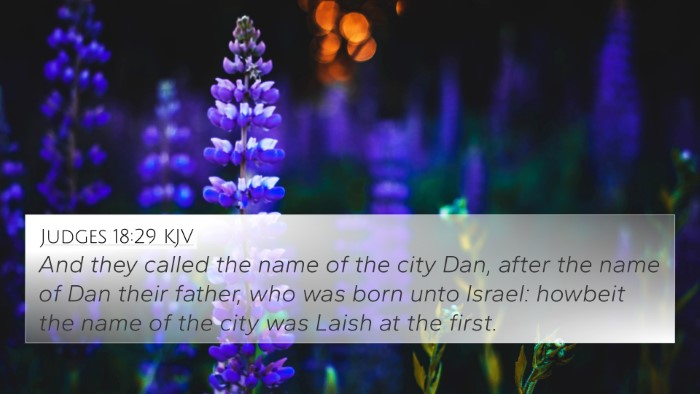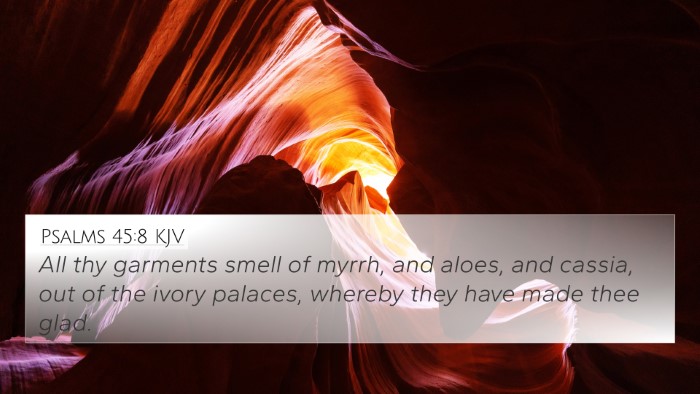Bible Verse Meaning of Ezekiel 27:19
Ezekiel 27:19 states: "Dan also and Javan going to and fro occupied in thy fairs: bright irons, cassia, and calamus, were in thy market." This verse is part of a larger oracle of lament over Tyre, detailing its vast trading networks and the goods brought forth by its merchants.
Summary and Interpretation
This verse illustrates the greatness of Tyre as a trading hub and emphasizes the importance of various materials and trading partners in its economy. The mention of "Dan" and "Javan" indicates regions engaged in commerce with Tyre, pointing to the international relationships that exist within trade. The significance of the goods, such as bright irons, cassia, and calamus, suggests luxury and extravagance, features of Tyre's commercial identity.
Commentary Insights
- Matthew Henry: Matthew Henry highlights that the mention of Tyre's trade reflects its fallen pride and the judgment of God upon it. The trading relationships, once prosperous, are shown to be ephemeral, reminding readers of the fleeting nature of worldly success.
- Albert Barnes: Barnes focuses on the geographical references, noting that Dan (northern Israel) and Javan (indicative of Greece) symbolize the extensive networks that Tyre maintained. He explains that these places were known for their trade and suggests that this further illustrates Tyre's significance in the ancient world.
- Adam Clarke: Clarke elaborates on the products mentioned, stating that bright irons indicate the intelligence of the merchants and the quality of goods that were traded. He relates this to the broader themes of prosperity and subsequent failure, highlighting God's sovereignty over nations.
Cross-References
Understanding Ezekiel 27:19 is enriched when we explore related verses. Here are several biblical cross-references that connect with its themes:
- Ezekiel 27:1-2: The introduction of the lament over Tyre sets the context of this verse and its significance.
- Ezekiel 26:17-18: These verses elaborate on the sorrow of Tyre's loss, reinforcing the impact of the fall of this great city.
- Isaiah 23:1-5: Isaiah also speaks about Tyre, emphasizing its role in commerce and judgment upon it.
- Revelation 18:10: The fall of Babylon, often paralleled with Tyre, demonstrates the divine judgment of capitalist excess and proclaims the final destruction of worldly systems.
- Proverbs 3:16: This verse speaks about wisdom and long life, contrasting worldly gain and spiritual health.
- James 4:13-16: In this passage, James warns against boasting about trade and future plans without recognizing God's sovereignty.
- Matthew 6:19-21: These verses remind believers to store up treasures in heaven rather than on earth, a theme reflecting the transient nature of earthly riches.
Thematic Connections
The themes of trade, pride, and judgment in Ezekiel 27:19 resonate throughout scripture, providing a rich ground for comparative study:
- Temporal vs. Eternal Values: The trade and material goods highlighted in Tyre's economy encourage reflection on what truly matters in life.
- The Sovereignty of God: The fall of Tyre reflects God's ultimate control over human affairs and the futility of against His will.
Tools for Bible Cross-Referencing
To fully engage in cross-referencing biblical texts like Ezekiel 27:19, various tools can be utilized:
- Bible concordance for finding words and themes.
- Cross-reference Bible study aids that highlight interconnected scriptures.
- Online Bible reference resources that provide digital access to comments and cross-references.
Conclusion
Ezekiel 27:19 serves as a surge in understanding the historical and spiritual repercussions tied to Tyre's economic activity. As we reflect on this verse, we are reminded of the importance of spiritual vigilance over material pursuits.
